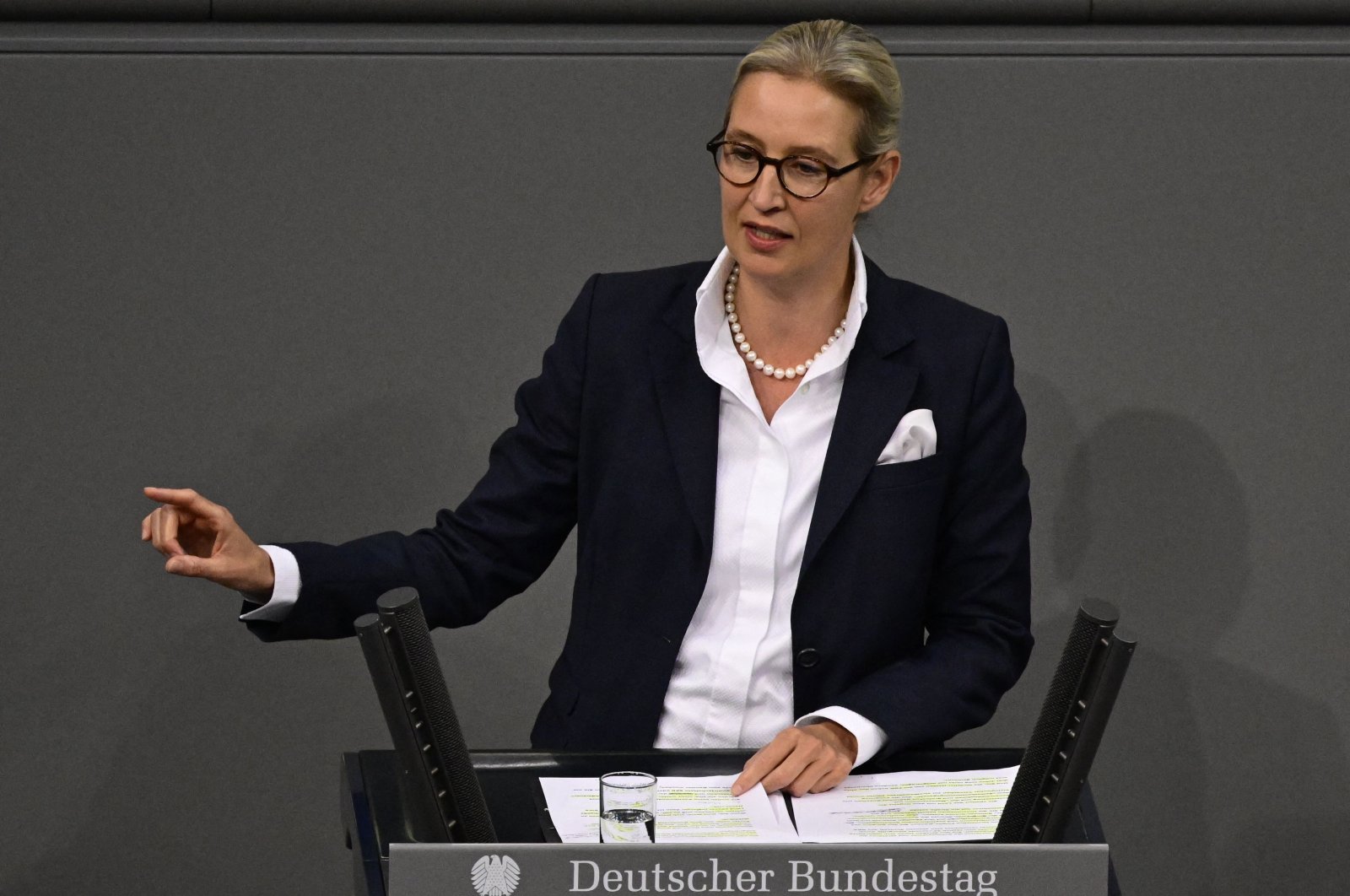
The Alternative for Germany (AfD) party, known for its far-right rhetoric, has plans to focus on a campaign with a goal to leave the European Union, the bloc's currency euro and the Paris climate deal, as it prepares for early elections in February 2025.
The policies are spelled out in the AfD's draft party platform, which will be discussed and voted on by AfD members at a national party conference on Jan. 11 to 12.
The 85-page paper also calls for a tightening of abortion laws, an end to economic sanctions against Russia and the repair and re-commissioning of the Nord Stream pipelines, which brought natural gas to Germany from Russia.
With regard to the euro, the draft program states that Germany must "end the misguided path of permanent bailouts by reintroducing a national currency."
The paper also states: "We consider it necessary for Germany to leave the European Union and establish a new European community."
The AfD draft platform accused the European Union of having vehemently pushed ahead with its transformation into a "planned economy super-state" in recent years.
The AfD's manifesto ahead of the European Parliament elections in June contained similar language but did not explicitly call for Germany to quit the EU.
The draft also calls for an exit from the Paris Climate Agreement to reduce greenhouse gases. The "alleged scientific consensus" of man-made climate change is politically constructed the draft claims.
There is no reason to restrict the use of coal, natural gas and oil, humans cannot protect the climate and carbon dioxide - the gas scientists say is most responsible for warming the climate - is ascribed a positive role in the draft program, which states that it is "a driver of increased global plant growth and thus promotes world nutrition."
Under the heading "welcoming culture for children," the AfD advocates legal restrictions on abortions in the draft.
"When carefully weighing up the interests, abortion must remain the absolute exception, e.g. in the case of criminological or medical indication," it says.
It is also proposed that pregnant women should be required to view ultrasound images of the child during counseling sessions when considering an abortion "so that they are aware of the child's stage of development."
Abortions are currently illegal under Section 218 of the German Criminal Code, but in practice are available and not subject to punishment in the first 12 weeks if the woman receives counseling beforehand.
An abortion also remains unpunished if there are medical reasons or if it is performed due to rape.
The possible legalization of abortion under German law has been the subject of political debate for years.
